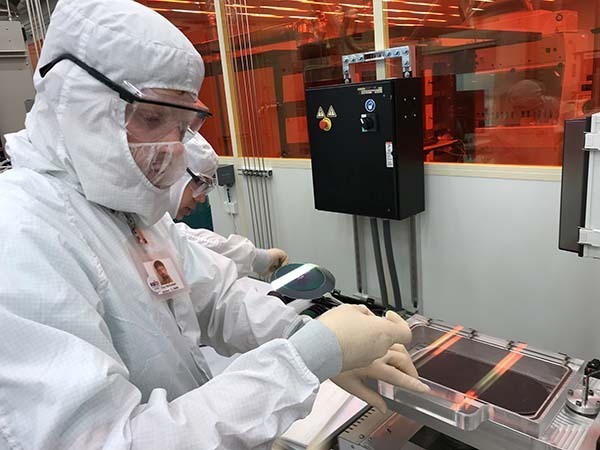Courses
The Center for Civic Innovation offers academic year courses for College of Engineering students to participate in community-engaged projects.
Industry and Community-Based Innovation Projects (EG35101 - 1 to 3 Cr.)
Instructors: Jay Brockman

The Center for Civic Innovation addresses community-identified priorities in our region. In this course, students from different majors will work in teams on projects that develop innovative solutions to real-world problems that come from industry, government, and not-for-profit organizations. All projects will contain substantial technical engineering content, with many projects employing multidisciplinary concepts. Students will have the opportunity to select their preferred projects from a list of available projects in a given semester and then be assigned to teams.The course may be taken for 1 or 2 credits (or 3 by special permission), and taken repeatedly so that credits can be accumulated and count towards a Technical Elective for any Engineering degree. Each student is expected to spend approximately 3 hours per week on the course per credit earned for semester-long projects (shorter projects may require a few more hours per week). All project teams will participate in a common orientation that includes topics such as project management and team leadership, but otherwise will meet at times convenient to the teams and their industry/community partners.
Complex Problem Solving in the Public Sphere (ESTS23005 - 3 Cr.)
Instructors: Jay Brockman and Danielle Wood
The central aim of the course is to explore the tensions between technical problem-solving and the public interest as we move into an increasingly technological future - e.g. Smart Cities. While this is in some ways the perennial broader question of how science integrates into society, we are focusing on issues particular to community planning and development as more and more tasks, from transportation to water management, are informed, if not controlled by nonhuman processes/algorithmic rules. For example, if we have 'smart sewers' and can control where the water goes during a flood, do we minimize property-value damage or the number of residences impacted? If climate change modeling indicates a new 30-year flood plain, do individuals have the right to not be moved out of harm's way? What are the moral and public interest questions embedded in this decision point? In doing so, we revisit this tension from the mid-20th century to set the stage and examine the interface of these issues in complex settings, including challenges with: defining the public interest, power and civic agency, measurement and data quality, objectives, variables, and constraints in optimization problems, and contextually/culturally situating 'optimal' solutions. Students examine community-based challenges through readings, case analysis, videos, site visits, and dialogue with faculty, community partners, and other students. Dialogue between the disciplines will be structured throughout the course to encourage deeper understanding of both analytical frameworks and assumptions brought to community-based challenges. The course will use local neighborhood community development efforts to illustrate challenges and critical factors in improvement efforts in the first two-thirds of the course, and it will culminate with a case analysis assignment for a very different neighborhood context (Puerto Rico) struggling with similar challenges.
Civic Innovation Projects Reflection (EG23010 - 1 Cr.)
Instructors: Danielle Wood and Alisa Zornig Gura
The aim of this course is to engage students in readings and deep reflection related to their experience in the Center for Civic Innovation winter term internship. Students will build a foundation in the summer internship program through design-thinking, leadership, project management, and diversity training and completion of a team civic innovation project in collaboration with community partners in the South Bend-Elkhart region. In the spring term, students will read relevant academic publications, reflect, then discuss their experiences, successes, and project constraints.